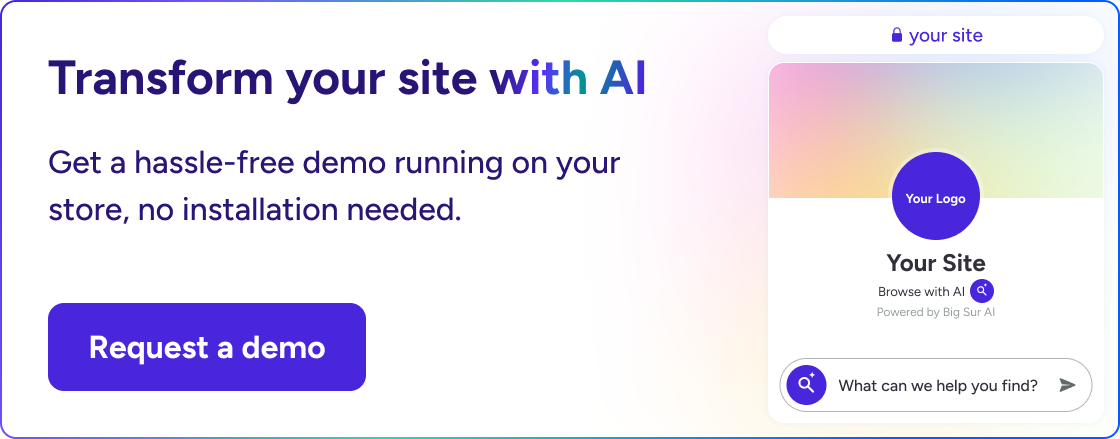7 Use Cases to delegate to AI Chatbots right now (July 2025 Review)
AI chatbots enhance business operations by automating customer support, boosting sales through conversational commerce, qualifying leads, providing 24/7 self-service, managing internal helpdesks, and personalizing customer engagement across various channels.
What Are the Top Use Cases for AI Chatbots in Business?
AI chatbots have evolved from novelty add-ons to mission-critical tools for modern companies. Businesses across industries use chatbots to improve customer experience, reduce operational costs, and boost revenue.
Below are the most impactful, real-world use cases that we hear from Big Sur AI customers for chatbots today:
#1 - Customer Support Automation
AI chatbots can instantly answer frequently asked questions (FAQs), guide users through troubleshooting steps, and reduce support wait times dramatically. Instead of needing to expand human support teams around the clock, businesses can deploy chatbots to handle thousands of simultaneous queries 24/7.
For example, an e-commerce store might use a bot to process return requests, track orders, and answer sizing questions → all without human intervention.
In Big Sur AI, you can set automated actions for your AI chatbot to perform when the conversation meets specific criteria ⤵️
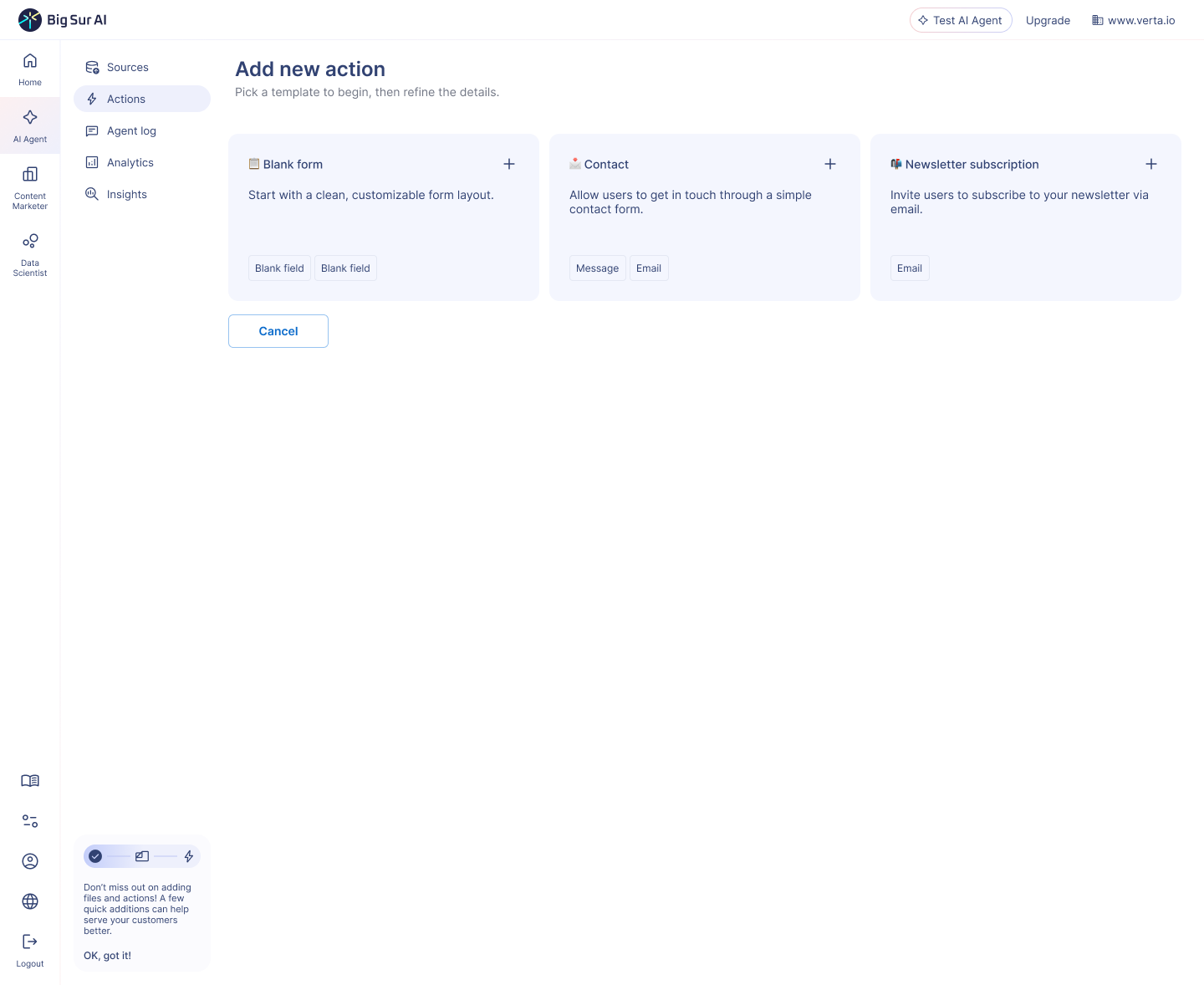
#2 - Lead Generation and Qualification
Sales teams often struggle to qualify leads quickly and efficiently. Chatbots solve this by asking visitors targeted questions in real-time, collecting essential details such as budget, timeline, and use case.
They can score leads, push qualified ones to sales reps, or even book meetings automatically. For instance, a SaaS company might use a chatbot on its pricing page to proactively engage visitors, qualify them with a short quiz, and schedule a demo call.
The most sophisticated AI chatbots like Big Sur AI will automatically try to capture and convert leads when the chatbot deems it optimal for both the visitor and the brand ⤵️
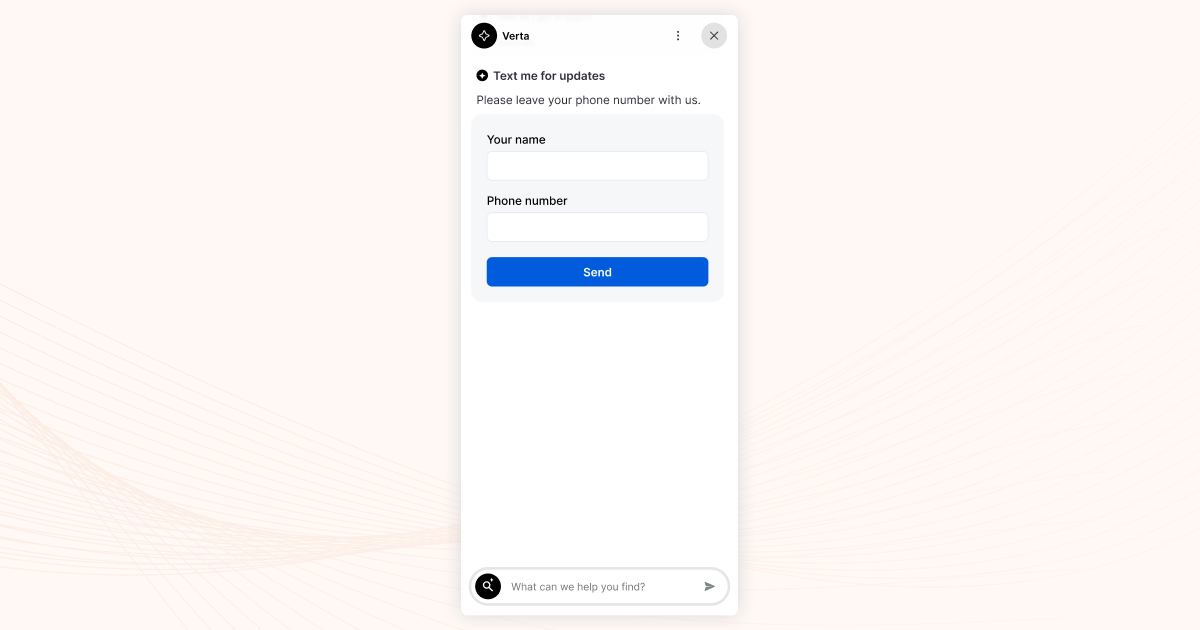
#3 - Conversational Commerce
Chatbots are reshaping online shopping by delivering personal, real-time shopping assistance. They can help customers choose the right products, provide tailored recommendations based on preferences or past purchases, and even complete transactions within the chat interface.
Retailers like H&M and Sephora use chatbots to recreate an in-store shopping experience online, driving conversions and reducing cart abandonment.
Visitors interacting with an AI chatbot like Big Sur AI can ask any complex question and get a precise answer. The chatbot will also suggest the best next follow-up questions 👇
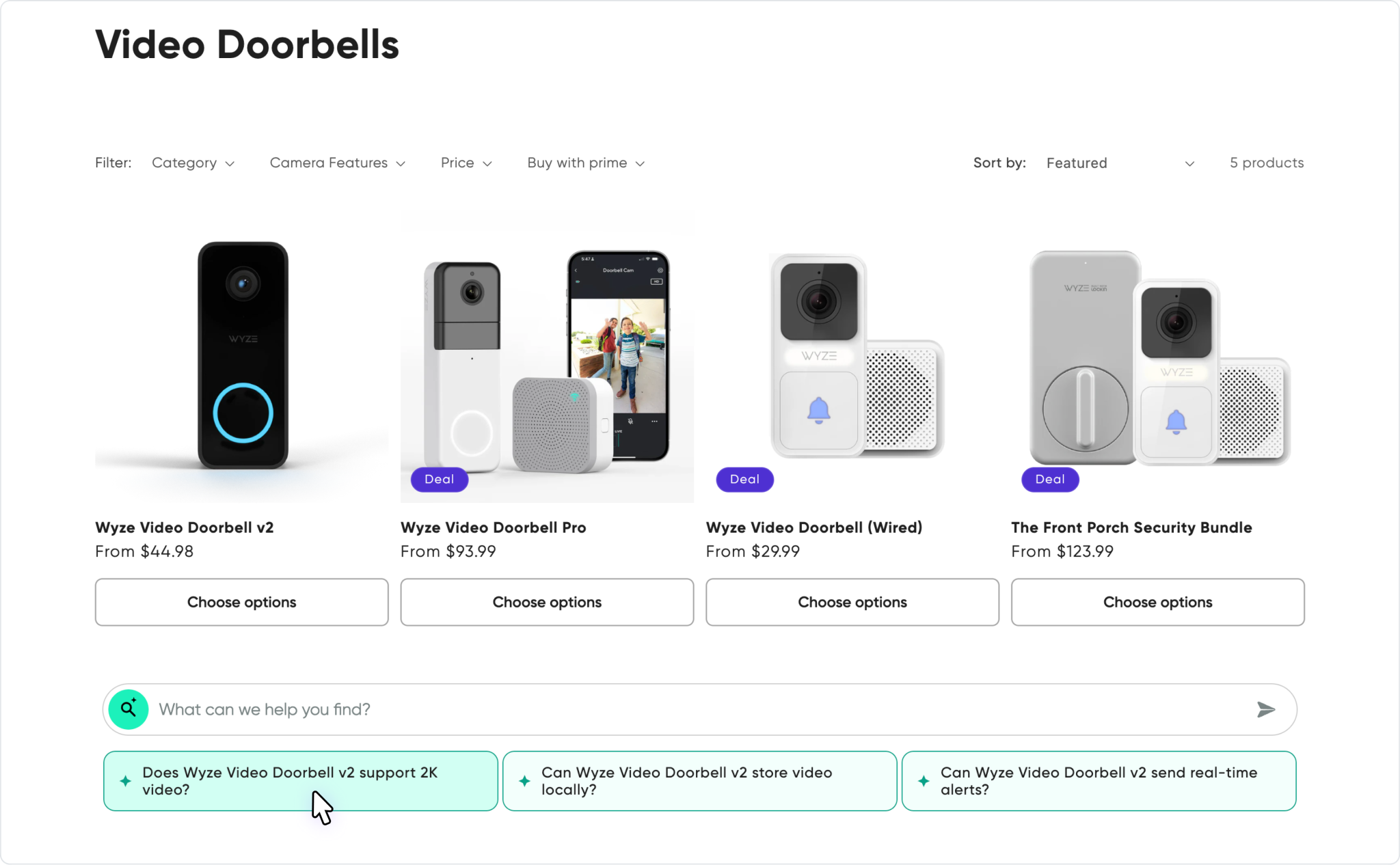
#4 - Employee Self-Service and IT Helpdesk
Companies often spend huge resources on internal support, whether for IT issues like password resets or HR policy questions. Chatbots can automate these routine tasks, freeing up IT and HR teams to focus on more strategic work.
Employees can reset passwords, look up policies, request equipment, or check PTO balances → all through a chat interface integrated with internal systems. This not only reduces ticket volume but also improves employee satisfaction by delivering faster answers.
#5 - 24/7 Customer Engagement on Multiple Channels
Customers today expect brands to be available wherever they are → websites, social media, messaging apps, or even voice assistants.
Chatbots let businesses maintain a consistent, always-on presence across channels, so customers can get answers any time, anywhere.
For example, a travel company might use the same chatbot to help customers book trips via its website, Facebook Messenger, and WhatsApp, ensuring a seamless experience.
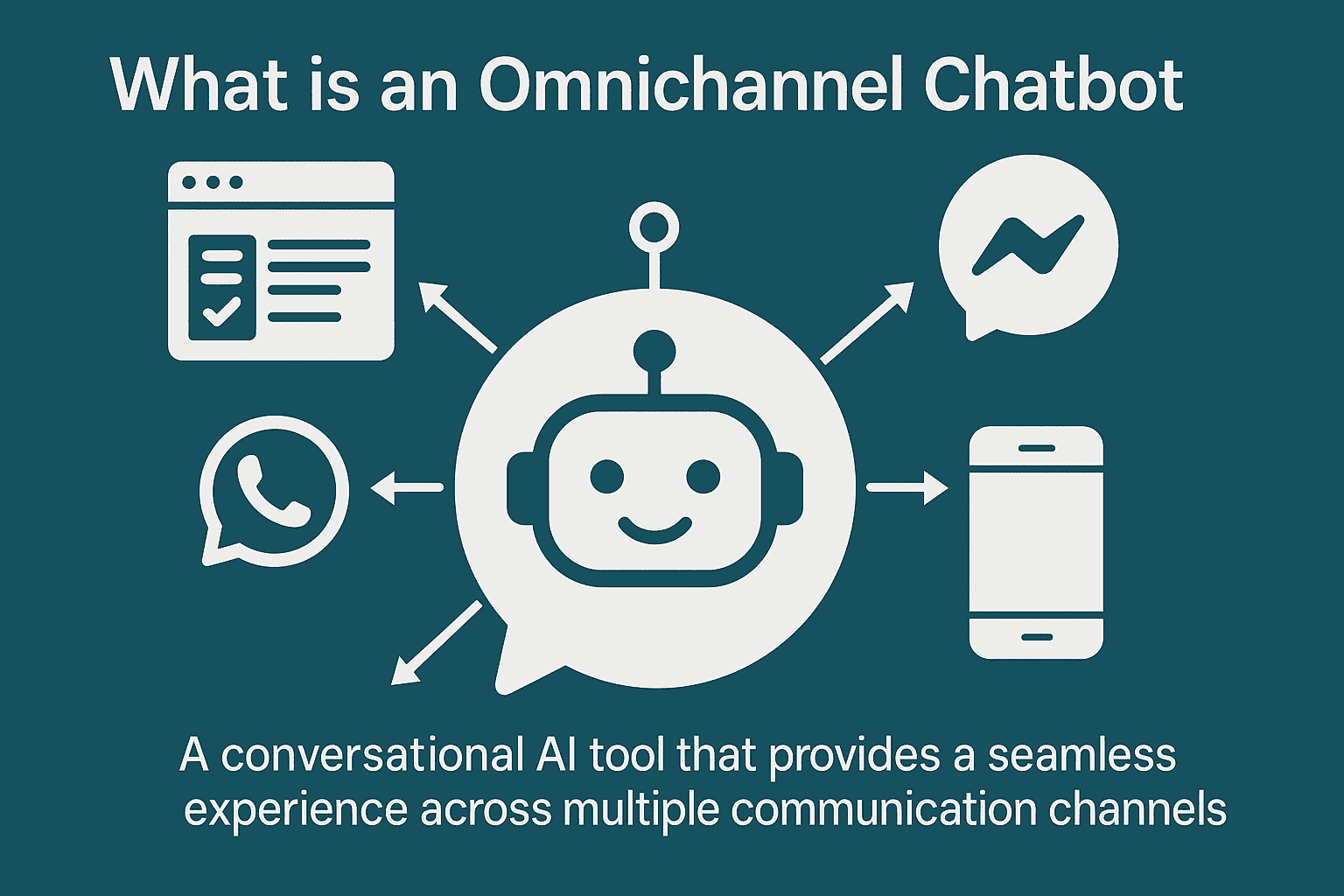
#6 - Task Handling
AI chatbots are great for handling small tasks on the spot.
As an example, Service-based businesses like medical clinics, salons, or consultancies use chatbots to automate appointment booking, reducing no-shows and administrative workload.
Instead of calling or emailing, customers can schedule, reschedule, or cancel appointments directly within a chat.
Here’s a summary of the main tasks that AI chatbots handle for businesses today (this list will only grow as chatbots get smarter) 👇
| Category | Simple Tasks an AI Chatbot Can Handle |
|---|---|
| Customer Service | Answer FAQs, track orders, provide account balance info, offer troubleshooting guides, escalate to human agents, check delivery status, cancel or modify orders. |
| Sales & Marketing | Qualify leads with questions, capture contact details, book sales calls or demos, offer product recommendations, handle discount inquiries, cross-sell or upsell, share personalized offers. |
| Appointment & Booking | Schedule appointments, reschedule or cancel, send confirmations, send reminders, check real-time availability. |
| Feedback & Surveys | Collect customer feedback, run NPS surveys, ask satisfaction questions, conduct product research surveys, collect bug reports or feature requests. |
| Internal Employee Support | Reset passwords, answer HR policy questions, guide onboarding steps, provide training materials, route IT tickets, check PTO balances, submit expense reports. |
| Order & Transaction | Add items to cart, process payments in chat, send receipts, confirm order details, update billing info. |
| Information Lookup | Check store hours or locations, look up policies or terms, find product specs, share pricing details, explain service plans. |
| Notifications & Alerts | Send shipping updates, notify about payment failures, remind about renewals, alert on sales or promotions, notify on policy changes. |
| Multilingual Support | Answer queries in multiple languages, translate user inputs or responses. |
| General Administrative | Create support tickets, check ticket status, route requests to departments, verify user identity, collect required forms or documents. |
#7 - Feedback Collection and Surveys
Traditional surveys often have low response rates because they feel tedious. Chatbots make feedback collection conversational and engaging, asking one question at a time and adapting follow-ups based on responses.
Businesses can utilize bots to collect post-purchase feedback, measure the Net Promoter Score (NPS), or even identify pain points in real-time.
For example, after resolving a support ticket, a bot can ask the customer how satisfied they were with the service and escalate issues if necessary.
How Do AI Chatbots Improve Customer Support?
AI chatbots are revolutionizing customer service by delivering faster, more consistent, and more cost-effective support.
Here’s how they do it:
24/7 Availability Without Scaling Human Staff
Customers can get help anytime, even during nights and weekends. This always-on support boosts customer satisfaction and reduces the need for expensive human agents on night shifts.
Instant Answers to FAQs
Chatbots can handle common, repetitive questions, such as “What’s your return policy?” or “How do I reset my password?” This frees up human agents to focus on more complex issues.
Seamless Escalation to Human Agents
When a question is too complex, chatbots can hand it off smoothly to a live agent, providing context so the customer doesn’t have to repeat themselves.
Consistent Tone and Messaging
Bots always deliver brand-approved answers in the right tone, ensuring customers receive reliable, consistent information.
💡 Recent data: IBM reports that businesses can cut customer support costs by up to 30% with well-implemented chatbots. The savings come from reduced staffing requirements and shorter resolution times while maintaining or even improving customer experience.
How Can Chatbots Drive Sales?
Chatbots don’t just support customers → they can actively increase revenue.
Here’s how they help drive sales 👇
Guiding Customers to the Right Products
Bots can ask questions about customer needs and preferences, then recommend the best-fit products, much like a helpful in-store associate.
Instantly Answering Pre-Purchase Questions
Questions about features, shipping times, or payment options can be answered on the spot, reducing buying friction and lowering cart abandonment rates.
Offering Personalized Recommendations
By using past purchase data or real-time inputs, chatbots can suggest tailored products or special offers, increasing average order value.
Completing Transactions Within Chat
Some bots support end-to-end checkout, letting customers add items to cart and pay directly in the chat window, simplifying the buying process.
💡 Recent data: Salesforce research shows that 70% of consumers expect brands to deliver conversational experiences. Meeting this expectation can significantly improve conversion rates and customer loyalty.
How Do Companies Use Chatbots for Internal Support?
Internal-facing chatbots help companies save time and reduce operational costs by automating employee support.
A few examples 👇
Password Resets and Account Recovery
Bots can guide employees through secure, automated password resets without waiting for IT staff.
Answering HR Questions
Employees can ask about benefits, leave policies, or expense procedures and get instant, consistent answers.
Onboarding Assistance
New employees can use chatbots to navigate orientation tasks, access training materials, and understand company processes.
Routing Support Tickets
Chatbots can triage IT or HR requests, directing them to the right teams or systems automatically.
💡 Recent data: Microsoft Azure’s bot service notes that these use cases reduce internal support workload while improving response times, making employee experiences smoother and more productive.
Why Use Chatbots for Lead Generation?
Lead generation is one of the most valuable use cases for chatbots, delivering significant ROI. Here’s how they help:
Real-Time Qualification
Bots can ask visitors qualifying questions while they’re most engaged on the site, identifying high-quality leads automatically.
Collecting Contact Details
Rather than relying on static forms, chatbots capture information in a more conversational, less intrusive way.
Lowering Bounce Rates on Landing Pages
Instead of passively hoping visitors fill out a form, bots proactively engage them before they leave, turning more visits into opportunities.
💡 Recent data: HubSpot research shows that companies using chatbots can see substantial increases in lead capture rates, making them a powerful tool for modern digital marketing strategies.
Summary
| Use Case | Description |
|---|---|
| Customer Support Automation | Instantly answers FAQs, troubleshoots issues, reduces wait times, and provides 24/7 support without growing human teams. Cuts support costs by up to 30% while maintaining consistent tone and enabling smooth escalation to agents. |
| Lead Generation and Qualification | Engages visitors in real time with targeted questions, qualifies leads automatically, collects contact details conversationally, and schedules sales calls. Reduces bounce rates on landing pages and increases lead capture rates. |
| Conversational Commerce | Assists shoppers by recommending products, answering pre-purchase questions instantly, and completing transactions within chat. Personalizes offers to boost sales and reduce cart abandonment, meeting consumer expectations for conversational experiences. |
| Employee Self-Service and IT Helpdesk | Automates internal support like password resets, HR policy questions, onboarding help, and ticket routing. Frees up IT and HR teams, improves response times, and ensures consistent internal communication. |
| 24/7 Customer Engagement on Multiple Channels | Maintains brand presence across websites, social media, messaging apps, and voice assistants. Ensures customers can interact anytime, anywhere with a consistent experience, improving satisfaction and retention. |
| Appointment Scheduling | Automates booking, rescheduling, and cancellations for service-based businesses like clinics and salons. Syncs with calendars, sends reminders, and reduces no-shows while cutting down on admin work. |
| Feedback Collection and Surveys | Replaces static forms with engaging, conversational feedback collection. Increases response rates, gathers real-time insights, and can escalate negative feedback immediately to improve customer experience. |
Need an AI chatbot that converts website visitors?
Big Sur AI (that’s us 👋) is an AI-first chatbot assistant, personalization engine, and content marketer for websites.
Designed as AI-native from the ground up, our agents deliver deep personalization by syncing your website’s unique content and proprietary data in real time.
They interact naturally with visitors anywhere on your site, providing relevant, helpful answers that guide users toward their goals → whether that’s making a decision, finding information, or completing an action.
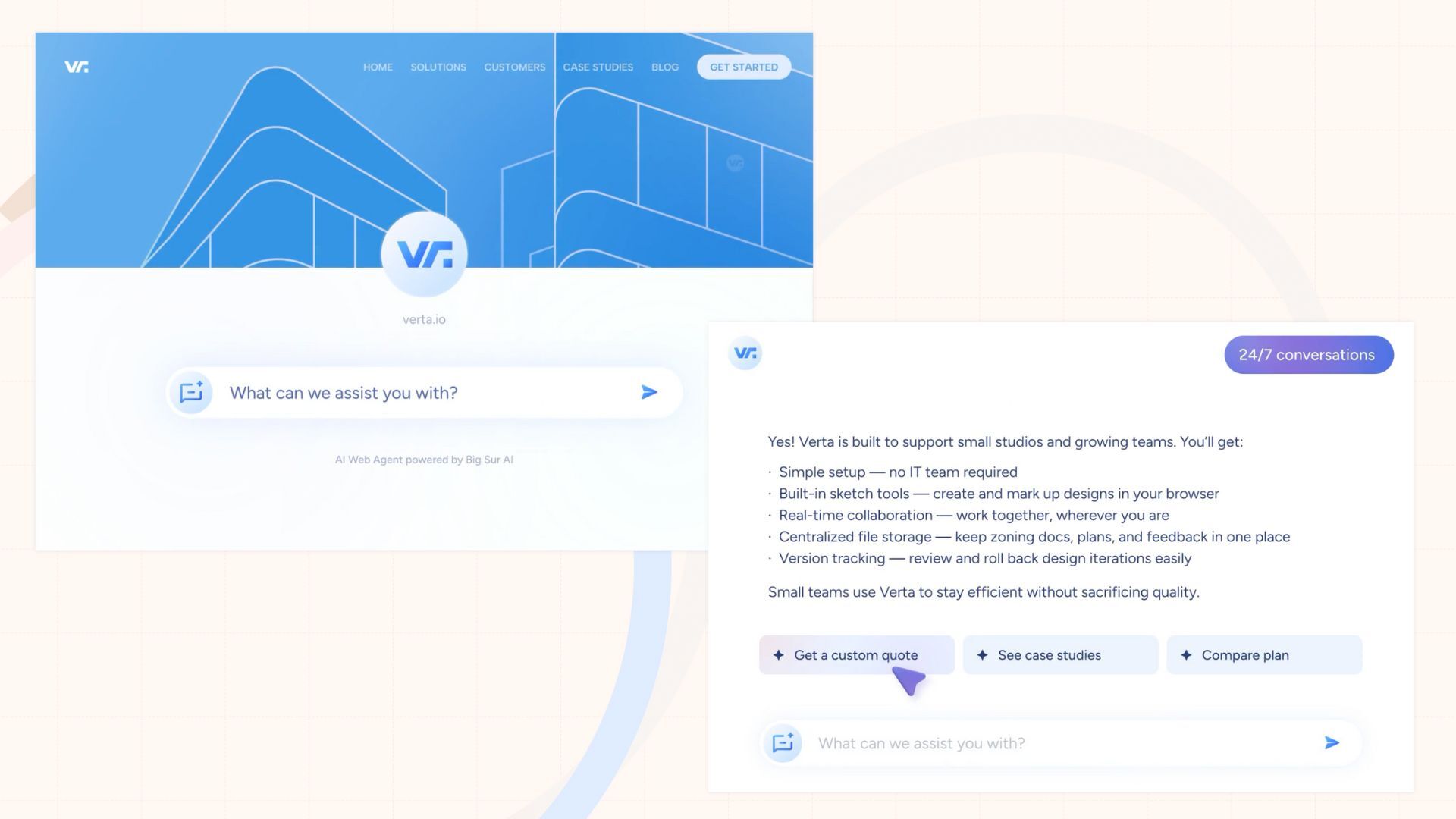
All you need to do is type in your URL, and your AI agent can be live in under 5 minutes ⤵️
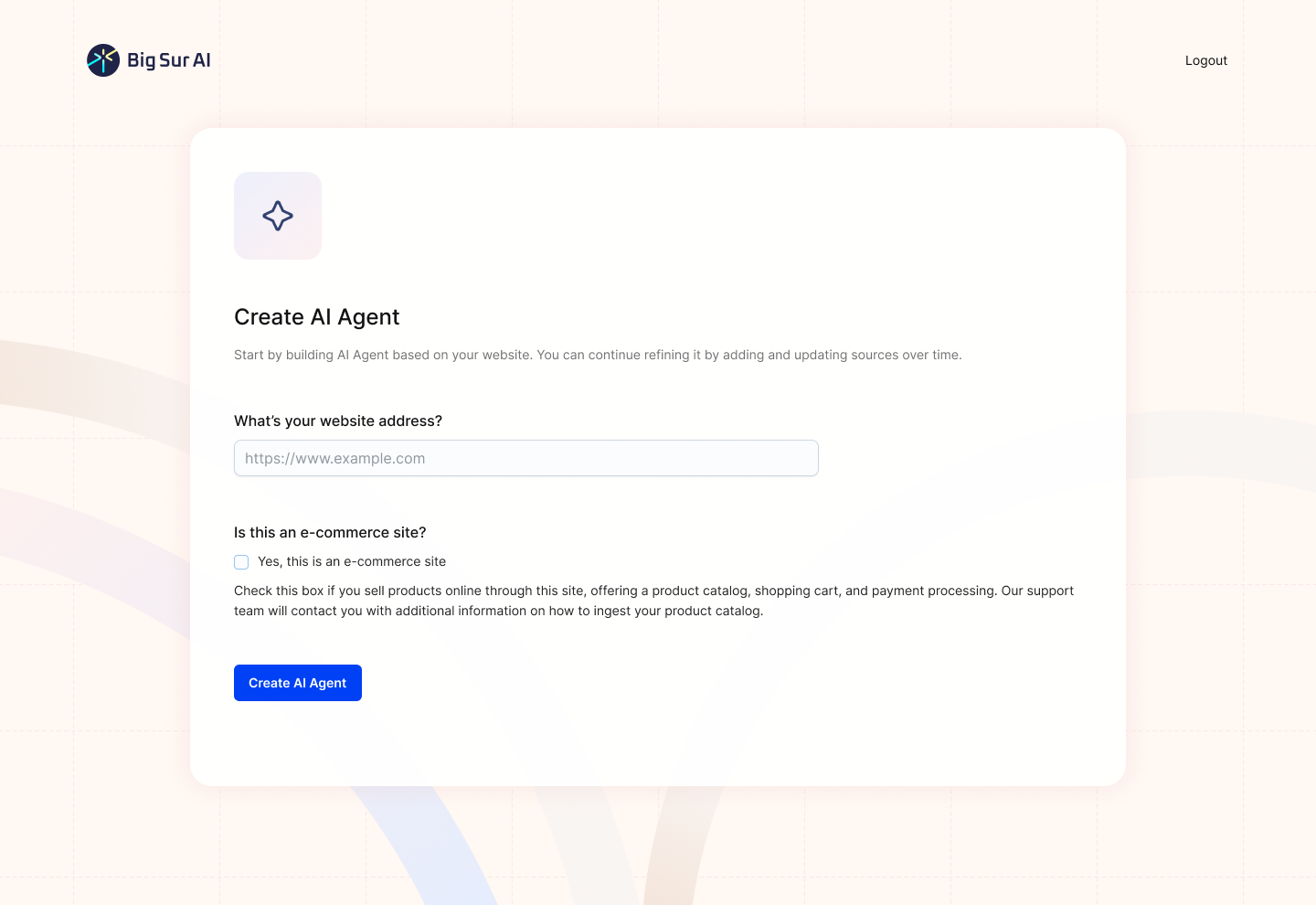
Here’s what you have to do:
- Sign up on Big Sur AI's Hub (link here).
- Enter your website URL. Big Sur AI will automatically analyze your site content.
- Customize your AI agent. Set up specific AI actions and decide where the AI agent will appear on your site.
- Launch and monitor. Your AI agent will be live in minutes, and you can track performance with real-time analytics.
Try Big Sur AI on your site in minutes by clicking the image below 👇
